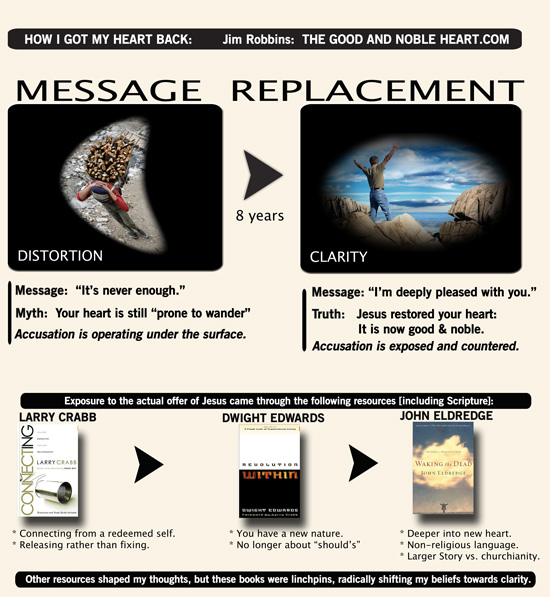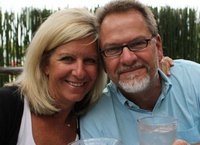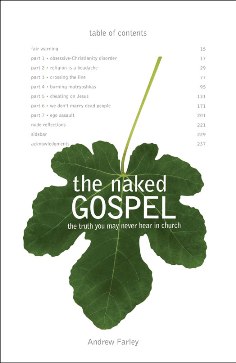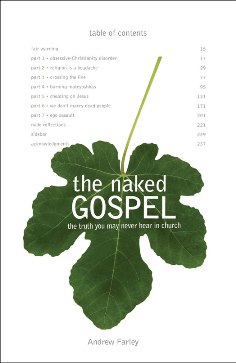It's not about trying to act like a Christian.
 Wednesday, January 25, 2012 at 4:28PM
Wednesday, January 25, 2012 at 4:28PM  If you chase externals, you get either a pharisee or a defeated Christian.
If you chase externals, you get either a pharisee or a defeated Christian.
"External manifestation of "Christlikeness" is not, however, the focus of the process [spiritual formation]; and when it is made the main emphasis, the process will certainly be defeated, falling into deadening legalisms and pointless parochialisms ... We know now that peculiar modes of dress, behavior, and organization just are not the point." - Dallas Willard, Renovation of the Heart
It's not about acting like a Christian, even though loving actions are important.
Willard continues,
"...to strive merely to act in conformity with his [Jesus'] expressions of what living in the kingdom of God from the heart is like is to attempt the impossible."
For example many Christians, under a pressure to be holy or under a false sense of conviction from the pulpit, try then to act loving:
"Love, we hear, is patient and kind. Then we mistakenly try to be loving by acting patiently and kindly - and quickly fail." - Willard
Willard says that, rather than conjuring love and attempting to act in loving ways, we need to "advance in love itself - the genuine inner readiness and longing to secure the good of others."
My own suggestion is that the way in which that inner readiness is developed is to:
- Recognize that in your new nature, it's already there.
- Celebrate with God's Spirit as he nourishes and releases that already-present love.
- Learn how God uniquely awakens and nourishes your heart: Music? Solitude? Conversational prayer? Scripture study? Art? A good hike in the woods? Meaningful conversation with others?
"the letter of the law kills, the spirit gives life." [2 Corinthians 3:6]
Related resources:
- "And please, try not to sin!"
- My book, Recover Your Good Heart, goes into much more detail about living from the good and noble heart Jesus has given the Christian; and what the Bible has to say about it. It debunks many of the myths we've been given about our hearts, so that we can live the life Jesus invites us to.
[Also in Kindle and AudioBook/MP3 formats.]




























